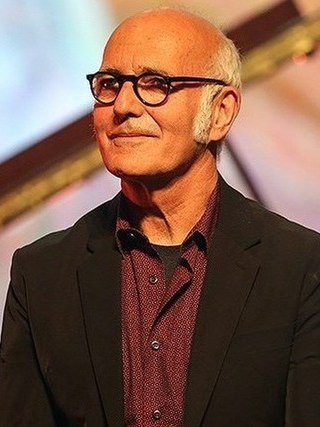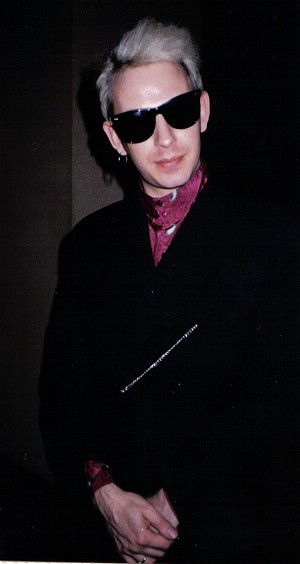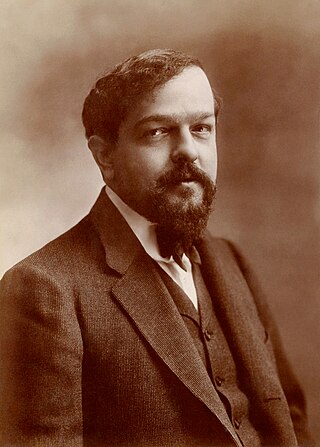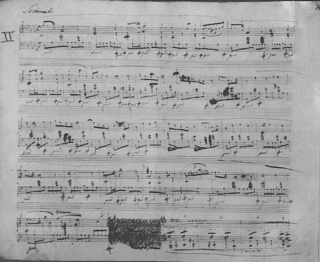
Keith Noel Emerson was an English keyboardist, songwriter, composer and record producer. He played keyboards in a number of bands before finding his first commercial success with the Nice in the late 1960s. He became internationally famous for his work with the Nice, which included writing rock arrangements of classical music. After leaving the Nice in 1970, he was a founding member of Emerson, Lake & Palmer (ELP), one of the early progressive rock supergroups.

Ludovico Maria Enrico Einaudi OMRI is an Italian pianist and composer. Trained at the Conservatorio Verdi in Milan, Einaudi began his career as a classical composer, later incorporating other styles and genres such as pop, rock, folk, and world music.

Steven John Bailey known professionally as Steven Severin, is an English songwriter, composer, multi-instrumentalist and producer. He is best known as the bassist of the rock band Siouxsie and the Banshees which he co-founded in 1976. He was also the co-founder of the short-lived band the Glove. He took the name "Severin" from the Leopold von Sacher-Masoch character who is mentioned in the Velvet Underground song "Venus in Furs". After the split of Siouxsie and the Banshees in 1996, Severin created his own label RE: and released several instrumental albums via his official website. In the late 2000s and the early 2010s, he regularly performed live in solo, playing music over footage of silent films.

Max Richter is a German-born British composer and pianist. He works within postminimalist and contemporary classical styles. Richter is classically trained, having graduated in composition from the University of Edinburgh, the Royal Academy of Music in London, and studied with Luciano Berio in Italy.
Claude Debussy's Préludes are 24 pieces for solo piano, divided into two books of 12 preludes each. Unlike some notable collections of preludes from prior times, such as Chopin's Op. 28 preludes, or the preludes from Johann Sebastian Bach's The Well-Tempered Clavier, Debussy's do not follow a strict pattern of tonal centers. Each book was written in a matter of months, at an unusually fast pace for Debussy. Book I was written between December 1909 and February 1910, and Book II in 1911 and 1912.
Final Fantasy VII is a role-playing video game by Square as the seventh installment in the Final Fantasy series. Released in 1997, the game sparked the release of a collection of media centered on the game entitled the Compilation of Final Fantasy VII. The music of the Final Fantasy VII series includes not only the soundtrack to the original game and its associated albums, but also the soundtracks and music albums released for the other titles in the collection. The first album produced was Final Fantasy VII Original Soundtrack, a compilation of all the music in the game. It was released as a soundtrack album on four CDs by DigiCube in 1997. A selection of tracks from the album was released in the single-disc Reunion Tracks by DigiCube the same year. Piano Collections Final Fantasy VII, an album featuring piano arrangements of pieces from the soundtrack, was released in 2003 by DigiCube, and Square Enix began reprinting all three albums in 2004. To date, these are the only released albums based on the original game's soundtrack, and were solely composed by regular series composer Nobuo Uematsu; his role for the majority of subsequent albums has been filled by Masashi Hamauzu and Takeharu Ishimoto.
Nelson José Pinto Freire was a Brazilian classical pianist. Regarded as one of the greatest pianists of his generation, he was noted for his "decorous piano playing" and "interpretive depth". His extensive discography for labels such as Sony Classical, Teldec, Philips, and Decca has garnered awards including the Gramophone Award and Diapason d'Or. Freire appeared as soloist with the world's most prestigious orchestras, including the Berlin Philharmonic, the London Symphony Orchestra, the Royal Concertgebouw Orchestra and the New York Philharmonic. He played and recorded piano duo music with Martha Argerich, a long-time musical and personal friend.

Jean Dubé is a Canadian-French concert pianist. In 2002 he won the International Franz Liszt Piano Competition.

Kodaline are an Irish rock band. Originally known as 21 Demands, the band adopted their current name in 2012 to coincide with the changing of their music. The group comprises Steve Garrigan, Vincent May, Mark Penderson and Jason Boland.

Lavinia Meijer is a South Korean-born Dutch harpist. Her concerts have included a solo harp evening at Carnegie Hall in New York City.

Ce qu'a vu le vent d'ouest is a musical composition by French composer Claude Debussy. It is the seventh piece in the composer's first book of Préludes, written between late 1909 and early 1910. The piece is 72 measures long, taking approximately four minutes to play. It is in the key of F♯ minor.

The Prelude Op. 28, No. 15, by Frédéric Chopin, known as the "Raindrop" prelude, is one of the 24 Chopin preludes. It is one of Chopin's most famous works. Usually lasting between five and seven minutes, this is the longest of the preludes. The prelude is noted for its repeating A♭, which appears throughout the piece and sounds like raindrops to many listeners.
The Prelude Op. 28, No. 4 by Frédéric Chopin is one of the 24 Chopin preludes. By Chopin's request, this piece was played at his own funeral, along with Mozart's Requiem.
Tzvi Erez is an Israeli–Canadian classical pianist and music producer.
Jean-Marc Savelli is a French pianist known for his interpretations of works by Franz Liszt, Frederic Chopin, Ludwig van Beethoven, the classical repertoire of Johann Sebastian Bach, and the impressionist repertoire of Claude Debussy.
Paolo Benetazzo is an Italian film director, actor, screenwriter, producer, editor and visual artist. He made his feature film directorial debut with Study (2012), which has been screened and awarded at international film festivals worldwide. Distinguished by a profound cinematic individualism, the film was entirely shot by Benetazzo without any film crew. He is the founder of independent film production company ARTtouchesART.

Study is a 2012 Italian psychological thriller drama film written, produced, directed by and starring Paolo Benetazzo. It follows a psychology student in the last week before his final exam, discovering his life and exploring his mind. Distinguished by a profound cinematic individualism, the film was made on an extremely low-budget and was entirely shot by Benetazzo without any film crew.

Frank Braley is a French classical pianist.











